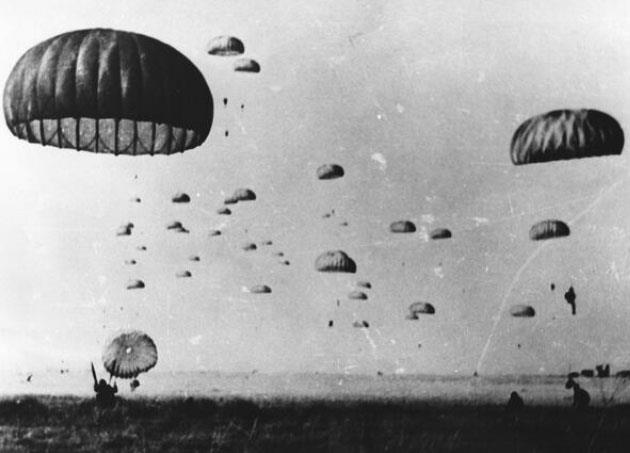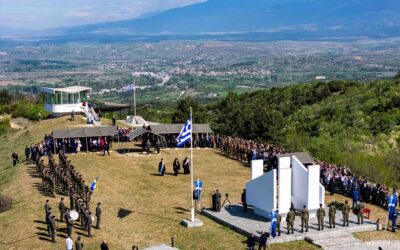HISTORY
HISTORY

Today marks 46 years since the day when the Turkish military forces advanced in August 1974 and occupied most of Mesaoria, Famagusta, Karpasia and most of Morphou in the west. This was done despite the agreed truce and by violating every rule of international law, including the Charter of the United Nations.
A large part of the city of Famagusta, where Greek Cypriots lived, has remained enclosed and deserted ever since, with the occupying army not allowing the legal inhabitants of the city to return to their homes and properties, despite the relevant United Nations resolutions and decisions.
Turkey found the reason to impose its divisive plans against Cyprus, after the coup d’état of July 15, 1974 against the elected Government of President Makarios. On July 20, 1974, claiming to act in accordance with Article 4 of the Guarantee Treaty, the Turkish Armed Forces launched a full-scale invasion of Cyprus, occupying 36% of the Republic’s territory and expelling the Greek Cypriots, by force of arms, from their homes and properties. More than 36% of the territory of the Republic of Cyprus, which represented 70% of the economy production, came under the occupation of the Turkish army, while one third of the Greek Cypriots became refugees in their own homeland.
The United Nations has, with many resolutions of the General Assembly and the Security Council, demanded respect for the independence, unity and territorial integrity of Cyprus, the return of refugees to their homes and the withdrawal of foreign troops from the island. The said resolutions have been utterly overlooked by Turkey nonetheless.
The situation in the enclave of Famagusta, Varosia, is vividly described in the European Parliament’s Committee on Petitions report on Famagusta published in 2008 following a fact-finding mission to Cyprus in November 2007: “From the fence that prevents pedestrians from accessing Varosi, beach hotels, apartments and restaurants there is nothing more than shabby concrete frames – huge urban tombstones that stand firmly against the passage of time. Nature also owns Varosia. Trees and shrubs have sprouted through the fractures of worn-out arteries, where the ground has sunk and filled the underground sewer system. Cats and rodents roam the straits. The churches have suffered the same fate as the other buildings: they have been desecrated and left to be silent witnesses to the once-dominant Christian community. Schools and children’s parks also remain abandoned.”
The Greek Cypriot side has repeatedly over the years demanded respect for the resolutions and the return of Famagusta to its legal inhabitants, while it also submitted proposals to achieve this goal, but all efforts confronted the refusal of the Turkish side.
In a recent written complaint sent to the UN Secretary General, the five Permanent Members of the Security Council, the President of the European Council and the Chancellor of Germany (whose country holds the presidency of the EU Council this semester), the President of the Republic Nikos Anastasiadis has stated in detail the provocative actions of Turkey and its settlers who, in violation of the Security Council resolutions, seek the usurpation and Turkification of the enclave of Famagusta. The President also stressed the need for immediate measures or sanctions to prevent threats and resumption of talks as soon as possible.
The statement also includes the suggestion for the establishment of an international committee of experts with the presence of Famagusta, Greek Cypriots and Turkish Cypriots, in order to record the situation of the city so as to return it to its legal inhabitants.
It also points out that any breach of the special protection regime of Varosia, contrary to the United Nations Charter and the relevant UN Resolutions, would be a very serious departure from what the Charters exchanged in Geneva in January 2017 clearly foresaw: the return not just of Varosia, but of a very wide area of the Province of Famagusta.
With information from CNA/EF
Also read:
Armenian Genocide Remembrance Day
On this day, 109 years ago, the genocide of the Armenian people by the Ottoman Empire began, with April 24 being the day of…
April 10, 1826 | The heroic Exodus of Messolonghi
Three years after the failed attempt of Kioutachis and Omer Vryonis to capture Messolonghi, the Sultan had a new plan.
Hellenic Army General Staff (HAGS) | Events for the 83rd Anniversary of the Battle of the Forts
On Sunday, April 7, 2024, the 83rd anniversary of the Battle of the Forts (April 6-9, 1941) was celebrated at “LISSE”, “RUPEL”,…
EUROSATORY 2024 | Missile Artillery Solutions from MBDA
With such a large number of interested attendees at MBDA’s pavilion at the Eurosatory 2024 Defence exhibition, the stand reminded of an…
KNDS | Showcases full range of LEOPARD battle tanks at EUROSATORY
KNDS continues to expand its technological advantage in the field of main battle tank development, as we have witnessed at the Defence and…
THEON SENSORS | Distinguishing appearance at EUROSATORY 2024 with new range of products
THEON SENSORS attended the International Defence and Security Exhibition EUROSATORY 2024 as an ambassador of Greek innovation…
Ministry of Defence | Organization of Hellenic EDF Info Day
A Conference entitled “EDF Info Day” is organized in the Amphitheater of the National Gallery on Tuesday, July 9 from 09:00 to 17:00.
ALTUS LSA | Participates in EUROSATORY 2024 with KERVEROS in the foreground
The participation of ALTUS LSA in EUROSATORY 2024 is among the Greek participations of operational significance.
Freddy Beleris | Ιn jail until October
The elected mayor of Heimarra and Member of the European Parliament of New Democracy will remain in prison until October…



















0 Comments